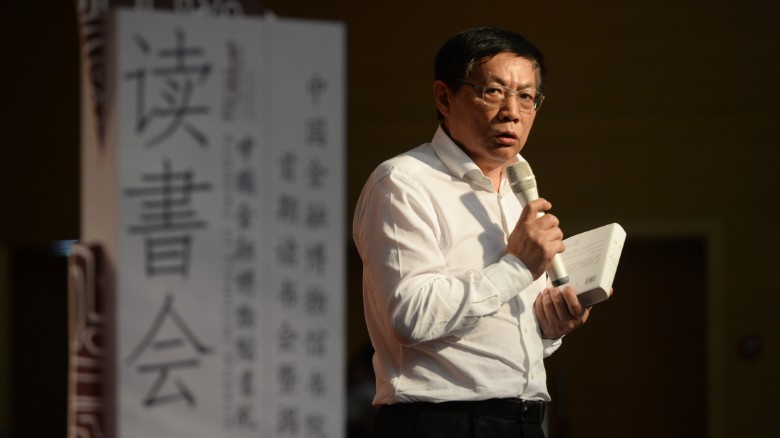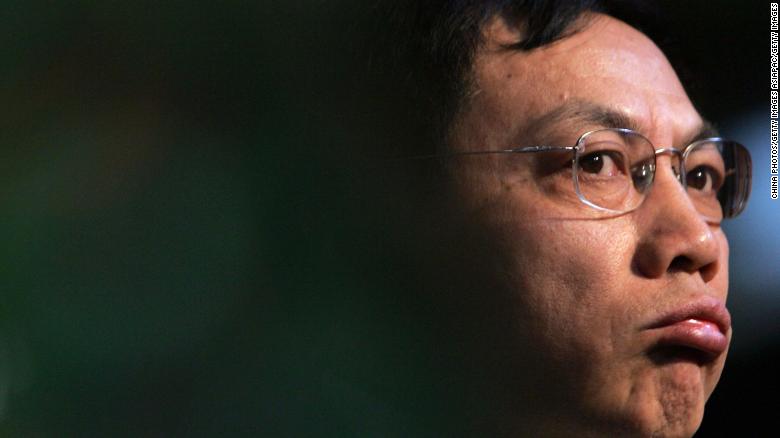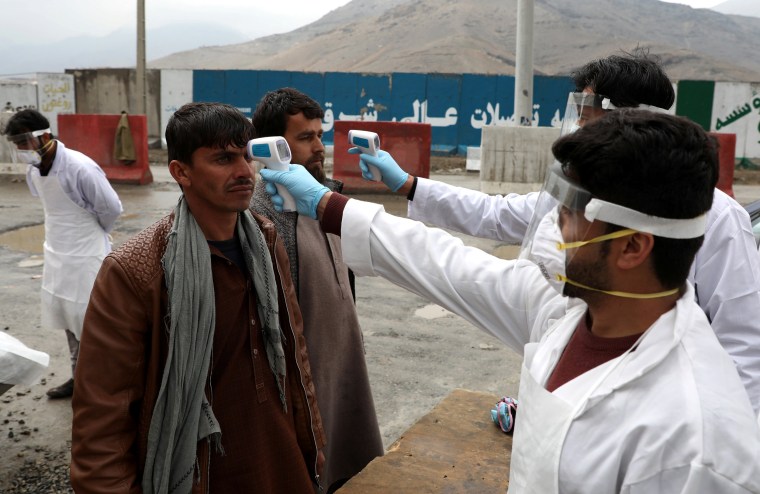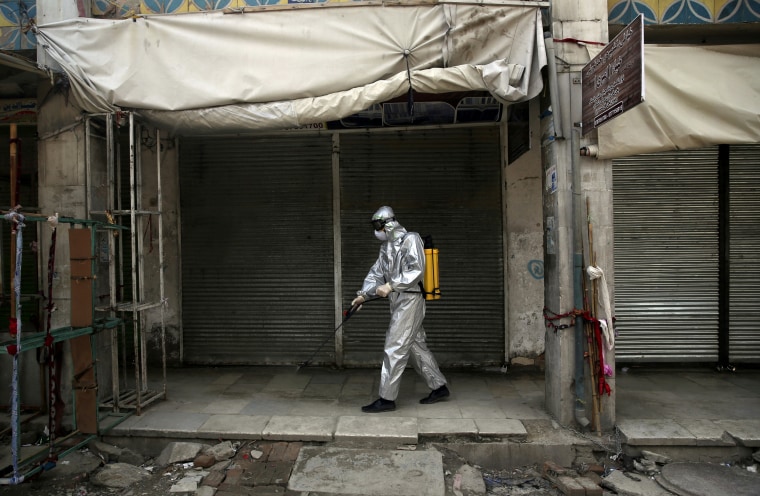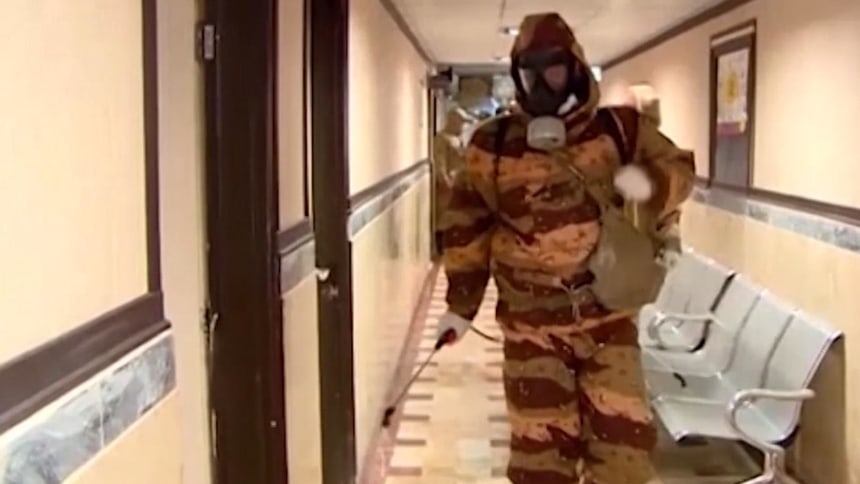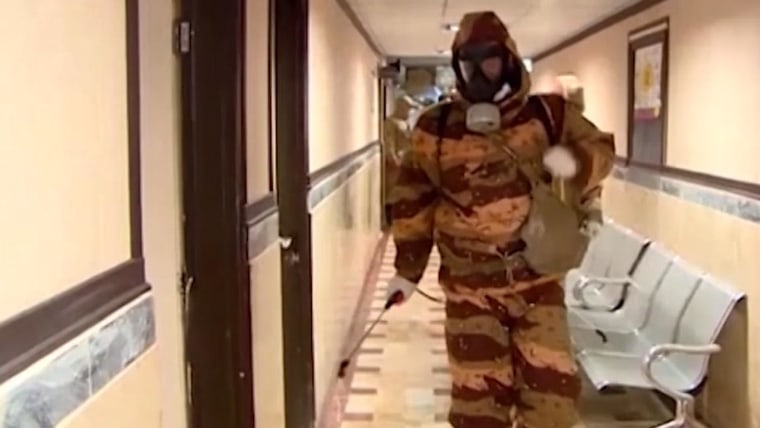What if you woke up one day, and had to be an entirely different parent from the one you were the day before? For much of America, that day arrived last month.
With the spread of COVID-19, millions of moms and dads have started spending a lot more time with their kids, in new roles. I’ve noticed a recurring semi-desperate refrain in memes as well as Facebook posts and Instagram Stories: “But I’m not a stay-at-home mom”; “I’m not a homeschooling dad”; “I’m not a Pinterest mom.” Along with the markets, the coronavirus has wreaked havoc on our mental health and parenting strategies.
What we’re all being called to do now is learn how to parent in a crisis. This is familiar territory for me, and the good news is that the parent you are today is not the parent you have to be tomorrow. Your parenting identity is not nearly as intransigent as your pantsless, potty-training toddler.
In September 2015, I was raising a 2-year-old with my husband, Jake, while I was 7 months pregnant with our second child. My toddler was easy on me—she was laid-back, sociable, and slept through the night. Aside from a Kate Middletonian amount of morning sickness, motherhood had been relatively smooth. I had an established parenting identity: I was a chill mom who took her kid on morning runs and road trips, a working mom, a mom with a partner with whom I could share some duties.
And then one Saturday, I became something else. My husband died in a cycling accident in a race to benefit cancer research. I lost my partner, I lost his contribution to our household income, and I lost my idea of what kind of parent I was.
“Life changes fast. Life changes in the instant,” Joan Didion wrote in The Year of Magical Thinking, her memoir about the loss of her husband and daughter. “You sit down to dinner and life as you know it ends.” You’re probably feeling like you’re seated at that table now. The coronavirus is serving up a rare and tragic mix of grief, drastic life changes, and economic stress to a huge swath of the country.
It sucks. Acknowledging, and accepting, this is key. Grief has several stages, and contrary to popular belief, they don’t occur in any specific order. One can experience anger and bargaining and depression all at once. Right now, many of us find that we work our way through those stages before lunch. But these are the cards you have been dealt. How will you play them?
“The quality of parenting is what … differentiates those [children] who do well versus those who don’t do well,” the psychologist Irwin Sandler says of the body of research on families in transition due to divorce or loss. “In a sense, that’s a very optimistic message. Because it indicates the power of parenting.” In other words, when something outside your control changes your life, it’s what you do with what you can control that really shapes your children.
Sandler, who studies the resilience of children and families at Arizona State University’s Resilient Parenting for Bereaved Families Program, encourages parents to create traditions and family time that take into account the new normal. Family bonding is one of five building blocks of resilient parenting, established by the Family Bereavement Program. The others are self-care, active listening, and the maintenance of some structure and rules, all of which culminate in helping children cope, the final building block.
I did this in various ways. Breakfast became a ritual. It was my favorite meal of the day and the time when my daughter was sunniest. The time was quality, the smell of bacon and eggs was comforting, and a hot meal was the clearest symbol that I could keep providing for my kids.
As the months went by, I knew that Christmas would look different. We bought a tree early—the weekend the new baby was born in November—to get a jump start on the holiday season and our rebirth as a family. My brother, who had moved in with us to help out, picked up the tree. Close friends, family, and neighbors who were our lifeline in those days gathered to trim it. We’ve done the same thing every year since, only now my girls go with me to pick out the tree and help me haul it into the house. My kids saw me walk through pain, pray, and provide, and for us, our tree is a reminder of how we made life and memories happen even in a time of crisis.
But before those new traditions came a new mindset. Jake died on a Saturday. I spoke at a memorial gathering for him on Tuesday. That night, I told people I wanted two things for my family: I didn’t want to live mired in grief, entering every room to the sound of a sad trombone. My life felt like a Lifetime-movie plot; even though an irreparably sad thing had happened to us, we were not irreparably sad people. I also made clear that we would live unafraid. I feared sheltering my children too much, keeping them from experiencing life because I was worried about one thing that happened on one day. An event would not dictate our identity. These were my greatest concerns.
Expressing my intentions out loud, to friends and family and myself, changed the way I lived. It changed the way people reacted to me. We climbed mountains before Jake died, and we would do so again. We went on giant road trips with Jake; a couple of summers after his death, my girls and I covered more than 2,000 miles in the American West (great for the soul, not so good for the car seats, which never fully recovered). I declared myself the mom of a happy family. Even in the saddest and scariest times, that is what people believed about me, and more important, that’s what I woke up believing about myself.
That shift was more about my identity than about my actions. Last year, I read James Clear’s self-help guide, Atomic Habits. Clear contends that you’re more likely to stick to something if it’s identity-based—if you believe it is in you to do it, not merely an item on a to-do list. “Your current behaviors are simply a reflection of your current identity,” Clear writes. “To change your behavior for good, you need to start believing new things about yourself.”
This was true for me. In the fog after Jake’s death, I did my best to focus on the strength I wanted, not the weakness I feared. I wasn’t a broken single mom. I was a mother guiding a family. In doing that, I stumbled into one of the more effective kinds of habit-forming: I’m the mom of a happy family, so I get up and make my kids bacon; I’m the mom of a family with a full life, so I let my kids climb the jungle gym even when I’m nervous. This mindset doesn’t keep me from crying or drinking too much wine or struggling with anxiety, but it puts me on a path to managing those things.
So, what do you need to believe about yourself right now? There was power in writing my own story. As more states declare schools closed for the remainder of the year, and the direct and cascading effects of the pandemic pile up, you’ll have to write yours. It may sound like a luxury. You’ve got other things to worry about. You’re right. But naysaying your own ability to shift gears is a sure way to put yourself at a disadvantage.
Believing in one’s own abilities makes parenting during a crisis easier, which bolsters a sense of self-worth and strength—suddenly, your other problems feel lighter. If you’ve been a parent for any length of time, no doubt you’ve proved yourself able to change in ways you never thought possible before you had kids. You’ve lived with less sleep than ever before. You swore you’d never let your kid wear a princess dress or Spider-Man mask out of the house, and we all know how that ended. You’ve already sharpened this skill, and it is a crucial tool for this new season.
Before Jake died, if you had asked me whether I was capable of labor without my partner, or bringing home a newborn without him there, I might have told you no, not possible. But crises can teach you a lot about your capabilities.
Practice makes slightly better over time. It’s no “practice makes perfect,” but perfect is not what you’re after. You’re not instantly going to be an expert homeschooling mom who also works a full-time job, nor should you try. Once you’ve decided what kind of mom or dad you are, do something small every day to put that identity into practice. Clear puts it this way: “Prove it to yourself with small wins.”
For me, in 2015, that meant getting out of bed (grief is physically exhausting, but grief plus third trimester is a doozy), keeping a job, taking my kids outside, and wrestling my toddler into a Mogwai costume for Halloween, by God. Every day, I got a little better at doing the things that make a home happy. Many days, my small win was a hot breakfast, and that was all I had in me. Some days, I had a hangover and it was Cheerios in my bed for the toddler until I could Skype with my therapist. On those days, I was the kind of parent I wanted to be only for a couple of hours—and that was fine too.
In the midst of a crisis, you’re just getting through an hour at a time. Later, you advance to a day at a time. The idea of forever is crushing. So give yourself a shorter timeline. Get through this morning, get through Monday, get through this week, and watch Tiger King with a glass of wine when you're done.
In her best-selling book on resilience, Option B, Facebook's Sheryl Sandberg recounts how she trained herself to see the possibility of light in the darkness after her husband’s death: “I … tried a cognitive behavioral therapy technique where you write down a belief that's causing you anguish and then disprove it. I wrote, ‘I will never feel okay again.’ Seeing those words forced me to realize that just that morning, someone had told a joke and I had laughed.”
You’ll have to make the same progression with your family now. Write your story, start small, get a tiny bit better every day, and give yourself a break.
Finally, remember how cool your kids are. My daughters got me through my crisis. Parenting is not easy, even in ideal conditions. But my responsibility to my children saved me from a worse fate. Standing in my kitchen in sweatpants, in a life that no longer felt familiar, I listened to the sound of sizzling bacon and my girls’ laughter, and knew that I was getting up every day to give them what they needed.
They did the same for me, even though they didn't have to. My oldest is an extroverted supernova who could command a room before she could talk. I needed her energy, and the fun she attracted. My youngest daughter is sweet, contented, and rarely stops smiling. She used to thank me for doing mundane chores around the house even though there’s no way she could have possibly known how much I needed to hear it.
Perspective is one of the paradoxical gifts of tragedy. The things that seemed like crises in 2014 snapped into proper focus for me in 2015, just as the minor things I worried about before COVID-19 seem less significant with every passing day. I’m thankful for every tomorrow I get to try again, especially for my kids, having learned how easily tomorrow can disappear.
My grandmother was a member of the U.S. Women’s Naval Reserve during World War II. After the war, she married her childhood sweetheart and had three kids, moving across the country and world when he was deployed. She too was eventually widowed, and she too went on to raise a happy family. After Jake died, I wore the Army Air Corps locket my grandfather had given her, as a reminder that I could do the same.



